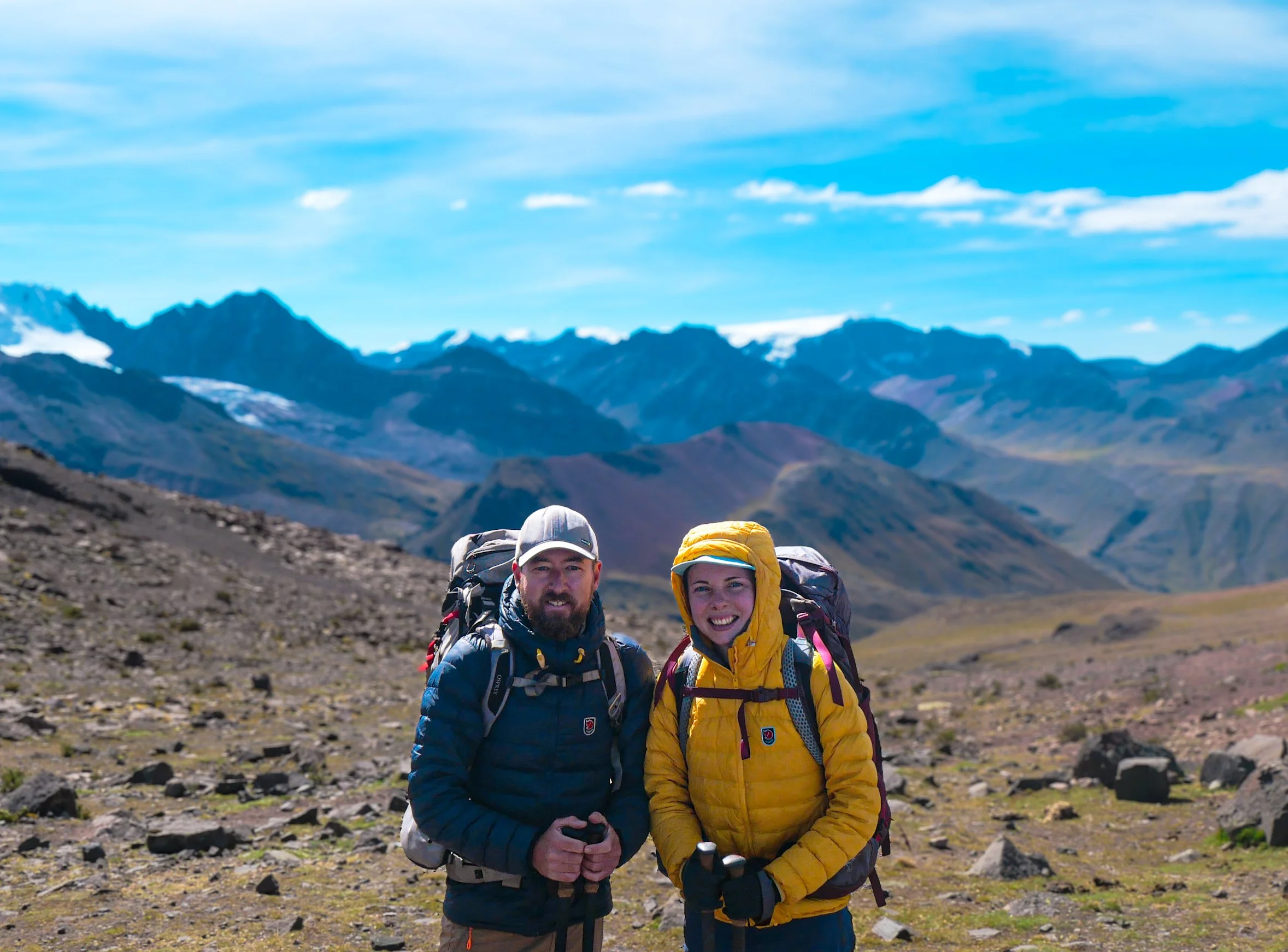
Deep in the Andes the snow capped legendary Ausangate mountain towers over us at 6384m high. We’ve gradually ascended to over 5200m, at 5500m it would be classed as extreme altitude. Although acclimatised we still feel the effects, shortness of breath and lightheadedness. We’re mindful but not worried, we take things slowly and can descend quickly if we need to. Whilst oxygen levels in the air around us are still 21% the altitude means there is less air pressure, this in turn means the particles are not so condensed and when we take a breath we are simply not taking in as much oxygen as we would be lower down. We are so high, yet still Ausangate looks down upon us.
Three hours out of the ancient Inca capital of Cusco we had disembarked the small local bus. We were now used to being the only non-locals. After months of hiking our bags and clothes are not shiny anymore, our appearance is a little unkept and we don’t draw much attention save the occasional stare from a young child. Some laughing children shout gringo once passed and a safe distance away. The small village is nothing to write home about, dusty and paradoxically busy yet sleepy - there a lot of people but nobody is going anywhere fast. We quickly pass through and begin the slow ascent up to 4000m which we won’t drop below again for the remainder of the four day hike.

The circular walk around Ausangate is reasonably popular although not busy, each evening as we camp there is a small group of people who are completing the hike as a guided tour. Horses carry their bags and the guides have set up large tents and will prepare evening meals. We’re here alone, self sufficient. Whilst having a horse carry your bags and someone to cook your evening meal is at times tempting, we personally get more satisfaction from doing this alone. The following morning as we try to defrost and then dry our tent the smell of bacon drifts across the campsite, testing our resolve. Wild camping completely alone can be so special but we don’t mind a few quiet others being around this time. We’re pretty remote and at high altitudes in foreign lands, there’s no harm in having a few other people around. Furthermore, paying a small fee to a local campsite owner feels like a fair way to give something back for the privilege of being here.
“If you are attacked by dogs, pick up a rock and pretend to throw it at them” the campsite owner on night one tells us. Ominous. Our expensive rabies vaccinations will buy us a bit of time to get more help but not much, best not to think of rabies. The semi-ferrel and fiercely protective shepards dogs have gained a reputation in these parts. We’re hoping to avoid dogs and certainly having to throw rocks. On day three our luck runs out though. We’re spotted a long way off, the barking starts, the distance shortens and suddenly we’re back to back fending off the dogs, teeth bared, with our hiking poles. I remember the advice and stoop to pick up a rock. These dogs have obviously been through the motions before and know that a rock on the nose will smart. They move away, almost disinterested now, the game is over, the gringos have been good sport but it’s not worth a sore nose. We walk on, dogs behind us and the mountain by our side.









